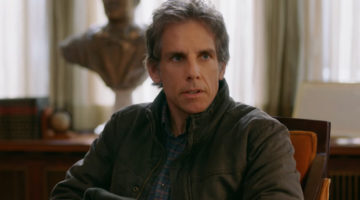TIFF 2012: Paul Saltzman talks 'The Last White Knight'
In his return to Mississippi, where he campaigned for civil rights in the 1960’s and captured the first racially integrated senior prom in one small town, Canadian documentarian Paul Saltzman reveals the most compelling of men, a polarizing, earnest southern gentleman from a different time and culture, and a member of a terrorist organization.
That is of course by any definition essentially what the Ku Klux Klan is, and Byron ‘Delay’ de la Beckwith is the titular figure in Saltzman’s 2012 documentary, The Last White Knight, shown at the Toronto International Film Festival en route to Vancouver and Mississippi.
What originally developed as a look at the social progress, or lack thereof, of the southern state, and its seemingly sudden surge in appeal to African Americans (Morgan Freeman told Mr. Saltzman for his documentary Prom Night in Mississippi that he felt safer in there than anywhere else in America), became a story of discovery, understanding, and hopeful reconciliation between two very different men with a past.
Mr. Saltzman first met Mr. Beckwick in the early 1960’s when he traveled from Canada to the south to campaign for civil rights when Mr. Beckwick and other locals, none too kind on intervening northerners, confronted Mr. Saltzman; he was assaulted. The two met 40 years later, at the same spot of the incident, beginning the film.
“I chose that spot so it would help bring those feelings of the encounter back,” explains Mr. Saltzman in Toronto. “I was nervous, it was the first time meeting after 43 years. He is really walking to shake my hand, his left hand grabs near my elbow. He wasn’t squeezing hard, he was holding it firm.”
The meeting on the steps of the courthouse begins a series of conversations over the course of a couple years as the two discuss the incident, civil rights, racism, and attempt to further understand one another, with Delay emerging a profound character.
“He is very authentic,” says Mr. Saltzman. “In his prejudice, in his hatred for President Obama, in his tenderness for his [African American] nanny, who he sees as emotionally more his mother than his real mother.”
“He is able to be real because that is who he is, and I’m not there to judge him, I’m not there to be right. I was willing to receive him, and we didn’t have to agree.”
That statement seems simple, but watching it unfold on camera is astounding, especially as stories from the past are told and Delay continues to stand firm with his longstanding beliefs that believe that white people belong to a superior race. Morgan Freeman and Harry Belafonte recounts incidents from Mississippi, and Mr. Saltzman chronicles the murder of activist Medgar Evers by Delay’s father.
Also interviewed are three present day Klan members, hooded, during one of the two times Mr. Saltzman admitted to being a bit ill at ease (the other was meeting Delay for the first time since the fight).
The aim of the film is not to condemn these people, though the comments and actions that transpire are unsettling and often repulsive. Beckwith’s attitudes line up with few people; while he father and grandfather were Klansmen, the younger generation in his family as moved away from him.
“I didn’t make this film just to make it,” Mr. Saltzman explains. “I made it to stimulate thoughts and feelings. I made it in the hope it would generate a kind of looking at oneself, looking at your own attitudes, beliefs, prejudices. Nothing will change until you do.”
“We can be right, we can always have an enemy, we can kill, we can get killed. We need to respect each other whether we agree or disagree, to see the other as a human being.”
The film screened once at TIFF, with a wonderful reception and emotionally question-and-answer to follow, says Mr. Saltzman. Beckwith has yet to see the film, but it will be brought to him soon, with the title character, a figure filled with antiquated attitudes and past violence, yet strange authenticity.





